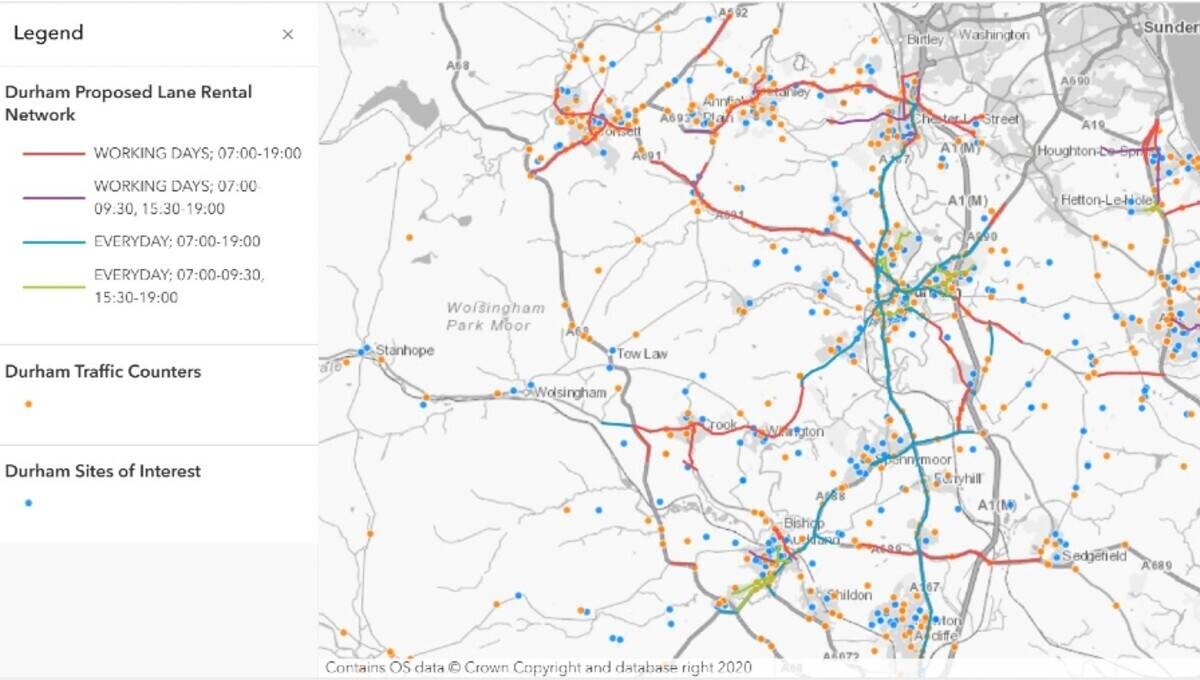Today the Department for Digital, Culture, Media and Sport (DCMS) publishes its Framework for UK Fibre Delivery
Today the Department for Digital, Culture, Media and Sport (DCMS) publishes its "Framework for UK Fibre Delivery: Street Works" as an important step in supporting the upgrade of the UK's digital infrastructure to ensure data can flow reliably at volume, and speed.
The deployment of fibre networks means an increase in street works taking place on the nation's roads. Recognising that street works cause disruption and congestion, the DCMS Framework is a toolkit offering advice for local authorities, operators and contractors to maximise the success of fibre deployment in a consistent and transparent manner across the country.
The toolkit aims to help improve the capability of local authorities and industry to plan, deploy and deliver world-class digital infrastructure at pace whilst preserving the road network.
GeoPlace supports the Joint Authorities Group (JAG(UK)) which works on behalf of its members to promote excellence in road network and traffic management right across the UK. JAG(UK) is a stakeholder in developing the toolkit. It will encourage its members to take advantage of the best practice for street works planning highlighted in the toolkit whilst recognising that the documentation will evolve over the next few months and will be linked to performance.
GeoPlace also plays a central role in coordinating street related issues through its management of the National Street Gazetteer (NSG). All 174 local highway authorities across England and Wales upload their Local Street Gazetteers together with Additional Street Data (ASD) to the NSG hub. This enables third-party organisations such as utilities to meet their statutory highway requirements to provide the appropriate street works notifications.
The NSG, containing definitive information for streets in England and Wales, carries the data that a utility needs to uniquely identify the streets earmarked for works, providing a unique reference number and ASD - additional information about a street, designed to aid the street works process.
Nick Chapallaz, Managing Director of GeoPlace said: "Key to the successful deployment of street works is the need to balance the delivery speed of works against the need to maintain the highway asset and manage disruption. For this to happen effectively, local authorities and operators need a "single view of the truth" for the road network. The NSG provides this verification."
GeoPlace provides a range of services to support street works managers in making the best use of the toolkit. These include advice on permit schemes, administration of the HAUC(UK) performance scorecards of works on the road network, advice on undertaking Traffic Sensitive reviews and the administration, maintenance, allocation and hosting of the Street Works Act codes on behalf of the Department of Transport.
END
About GeoPlace
GeoPlace LLP is a public sector limited liability partnership between the Local Government Association (LGA) and Ordnance Survey.
GeoPlace is a world class expert in address and street information management, working internationally as well as in the UK to help our partners and customers maximise the value of their spatial information for better decision making.
GeoPlace maintains a national infrastructure that supports the address and street information needs of the public and private sectors. Its work relies heavily on close working relationships with every local authority in England and Wales. This relationship has been developed over 15 years, to build the National Address Gazetteer infrastructure and National Street Gazetteer. Ordnance Survey develops the range of AddressBase products from the National Address Gazetteer and OS MasterMap Highways Network from the NSG. Both datasets underpin efficient and effective services, bringing direct service delivery benefits to users.
The Unique Property Reference Number (UPRN) and the Unique Street Reference Number (USRN) are the unique identifiers for every addressable location and street in Great Britain. They are created by local authorities who have the statutory authority to name and number every street and property and Ordnance Survey who identify objects on the landscape which may otherwise not attract an address.
These unique reference numbers link datasets together and share information with other organisations who also use them. They provide a comprehensive, complete and consistent identifier throughout a property's life cycle â from planning permission or street naming through to demolition.
See https://www.geoplace.co.uk.
About JAG(UK)
The Joint Authorities Group - JAG(UK) - represents the organisations responsible for the roads and streets of the United Kingdom.
JAG(UK) focuses on the daily operation, the coordination of works for asset or utility network management and other events taking place on the highway.
JAG(UK)'s member organisations are primarily local authorities and similar bodies whose principal activities are governed by highways, street, road and traffic management legislation. Their responsibilities include regulation of streets and roads for any purpose, with a view to maintaining public safety, asset integrity and the movement of people and goods.
JAG(UK) has six primary objectives and supports its members in achieving these.
-
safeguarding the quality and effectiveness of highways as the major transport network
-
developing a consistent and appropriate implementation of regulations, fairly balancing the legitimate needs of road users and works promoters of all types
-
identifying and promoting good practice in all aspects of traffic and works coordination
-
supporting the practitioners within member organisations in their personal professional development through the provision of guidance and timely, appropriate communication on important issues
-
representing the interests and expert contributions of the membership in the wider public arena, including government, the Highway Authorities and Utilities Committees, National Traffic Managers Forum and other related bodies
-
maintaining an attitude of cooperation and pursuit of efficiency of operation of works, while remaining mindful of regulatory responsibilities.



